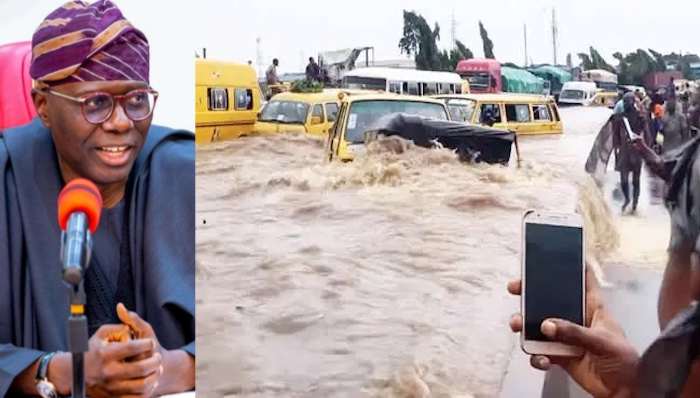Residents of Ikota and parts of the Lekki axis have issued a Save-Our-Souls (SOS) appeal to Lagos State Governor Babajide Sanwo-Olu, after Tuesday’s heavy downpour left homes and major roads submerged.
The floodwaters swept through streets, damaged businesses, and forced families to rush belongings out of harm’s way.
“This is no way to live,” a distraught resident lamented. “Every rainfall is a disaster. We are losing everything while the government watches.”
Residents blamed the persistent flooding on human factors, particularly illegal structures erected on canals and drainage channels, including the crucial System 156 and 157 lines.
They accused developers of blocking waterways and faulted the state government for failing to enforce its planning regulations.
“Until the government restores this area according to the original master plan, the flooding will not stop,” another homeowner said, standing in knee-deep water.
Urban planners note that Lagos’ master plan prohibits construction on waterways, but enforcement has often been weak and selective. Many residents believe influential developers escape sanctions, leaving ordinary families to suffer the consequences.
Beyond damaged homes, the flooding displaces families, destroys livelihoods, and raises public health risks as stagnant water becomes a breeding ground for disease.
Environmental advocates warn that Lagos is on the brink of a major crisis unless illegal encroachments are cleared and drainage channels freed.
“Every illegal structure is a ticking time bomb for nearby communities once the rains return,” an activist cautioned.
For residents of Ikota and Lekki, the message to government is clear: clear blocked drainages—particularly System 156 and 157—enforce planning laws, and prevent yet another rainy season from turning their neighbourhoods into disaster zones.

